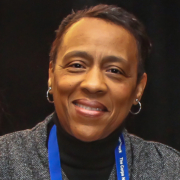

Article, written by Luke Siutyis, appears in Diversity Executive magazine.
The sad truth regarding American National Parks is that relatively few minorities visit them or work there. Inclusivity is a problem, and the Student Conservation Association is a working towards remedying it. As a national non-profit organization, they provide young students with opportunities to get engaged in park conservation and management. SCA has several ongoing initiatives to this end, such as a partnership with the National Park Service to create the NPS Academy, a program that targets minority college students, and inner-city programs in places like Detroit, Chicago, and Baltimore.
Alvi Seda, who has loved the outdoors since childhood, devotes his career efforts to expand diversity and tackle this problem. Diversity Executive had a chance to speak with him on the subject.
As a Recruiting Coordinator for Diversity Initiatives, what is your goal exactly? How do you go about fulfilling it?
My goal is to recruit candidates from all walks of life, from different ethnic and cultural backgrounds to participate in programs centered on environmental conservation, community service, and education. The SCA programs that I recruit for provide trainings and career paths for youth to get full time employment opportunities with the National Park Service, Fish and Wildlife Service, US Forest Service, and many other land management agencies. I believe it is important to connect different populations with these resources in order to have a holistic and diverse representation of ideas enriching our public spaces so they can be accommodating to all visitors.
In order to accomplish my goal, I travel the United States doing presentations and speaking with a variety of students groups. I visit college campuses, career fairs, conferences, and a variety of special events to spread the word about SCA programs. I spend a lot of time working with minorities and underrepresented populations especially within the southeast region of the United States and Puerto Rico.
What’s the current problem with attendance in National Parks, and why is it an issue? Is that connected to the diversity (or lack of it) among the parks’ conservation field staff?
National Parks have traditionally always had low attendance from diverse populations. There are many different cultural reasons for the lack of diversity at National Parks. The way the parks are managed, the availability of recreational resources, park fees, park regulations, traditional cultural past times, availability of the resource or how easy it is to access and get back home, all of these factors and many more affect who visits parks. Traditionally parks have been set up to accommodate an American tradition of great outdoors park use. That view is not often shared with ethnic populations. An increase in diversity among park staff is allowing different ideas about park use and management to occur. This is making National Parks more accommodating to diverse ethnic populations and ultimately making National Parks more inclusive to all populations. There is an increase in more urban National Parks which cater to diverse ethnic populations and there is an increase in national parks including the history of ethnic populations as an important part of their parks history.
What are some of the steps you and the Student Conservation Association are taking to remedy the lack of diversity?
The Student Conservation Association has numerous diversity career programs in place that are designed to work with ethnic populations and veterans to help them get full time employment opportunities with a variety of federal land management agencies. We also have many high school programs that are designed to engage ethnic populations at the high school level in order to get them involved in conservation and community service at a young age.
Many diverse students start their careers with SCA when they are 15 years old and stay involved with SCA until they get a career with the National Park Service or any of our other partners. Our high school programs are very good and often provide a life changing experience for students coming from an inner city background who are unfamiliar with the great outdoors and conservation. SCA itself is set up to provide a continuum of service to our members in order to achieve our greater diversity goals. We engage diverse students at a young age and give them the training and the skills they will need to be the next generation of conservation leaders.
How has your own background influenced the career path you chose?
Coming from a low-income Puerto Rican family, I never really experienced a National Park until I was in my twenties. When I was young I loved the outdoors and used to play in small wooded spaces within the city I lived in. When I was in my early twenties, I did an Appalachian Trail thru-hike with one of my American friends, and it changed my life. I instantly fell in love with the mountains and forests I was hiking through, and decided that I would pursue a career in environmental education.
I studied environmental education at Prescott College in Arizona and spend a lot of time in National Parks and Forests, leading groups of people and teaching environmental education. I realized how valuable and beneficial my connection to the outdoors had been for me, and I wanted to share that gift with others. Now I spend quite a bit of time in Puerto Rico working with students from there in order to help them get opportunities with SCA. Just yesterday I helped my little cousin get ready for his first SCA program. He is a freshman in high school and he will be serving in Morristown, NJ, this summer. He has never left the state he lives in and has never camped or hiked outdoors. I am excited to see him get started with his first SCA experience at the age of 15. My cousin comes from the same exact circumstances I came from but SCA is going to provide him with an excellent opportunity to gain valuable skills and connect him with the outdoors. His scenario is exactly the reason I chose to become the Recruiting Coordinator for Diversity initiatives at the SCA; because I believe it is important for underrepresented populations to interact and be involved with our public spaces and our nation’s natural resources.


































































